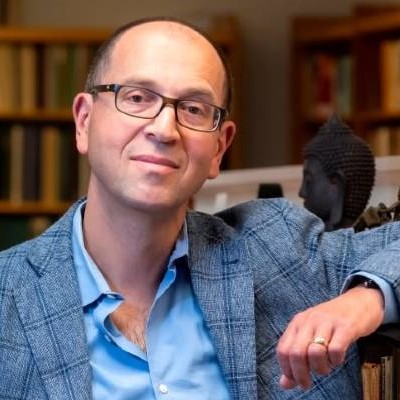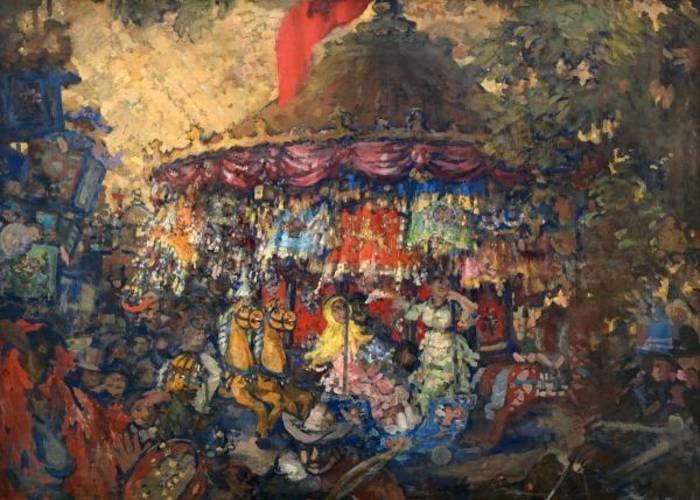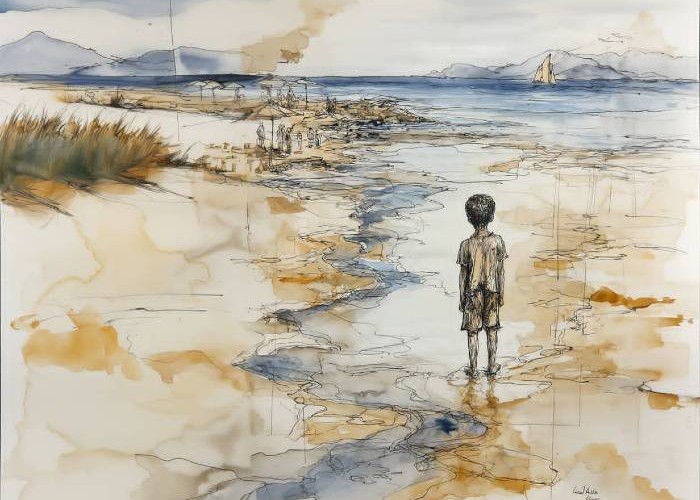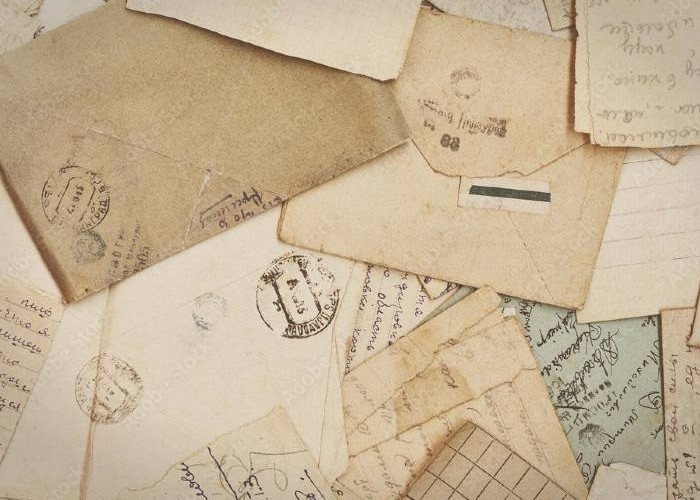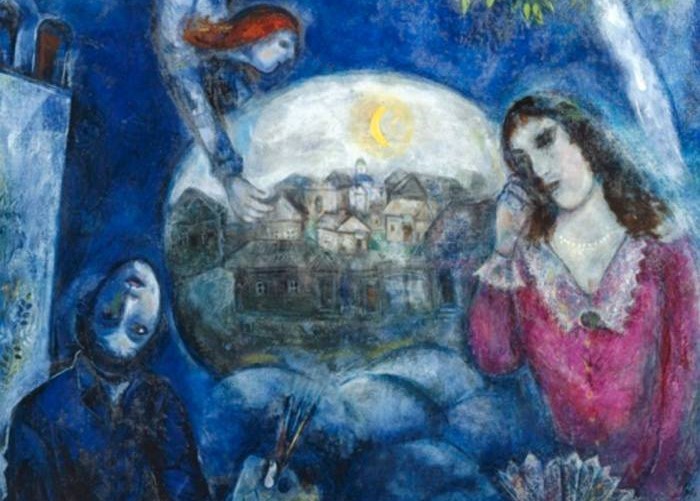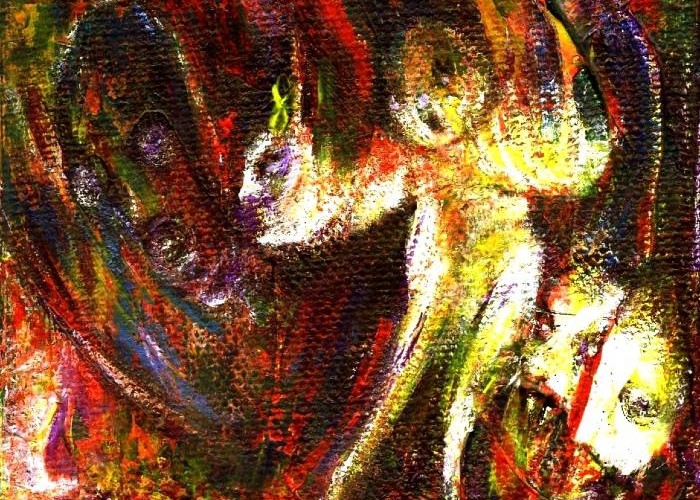How did we do so much damage, merely sitting and watching,
strolling, on fine days, the grounds of the parks, the arboretum,
or sitting on benches in front of the public library,
feeding pigeons out of a paper bag?
— Louise Glück
Through the emaciated dusk of February’s last weekend, Danny Kantor sailed the sea of suburbia. He was nearing his destination, a crimeless colonial town. Esther had been living here for almost five years now, getting a doctorate in Soviet history at one of the country’s oldest universities and pretending that she didn’t have to deal with the idiots and scoundrels of the real world. And Danny—Danny liked to believe that with the exception of geniuses, who wake up in the middle of the night to jot down a formula on the wallpaper of their vatic dreams, graduate students were merely delaying their crushing descent to reality. He had left graduate school after passing his qualifiers. It had been almost seven years, and he had rarely regretted his decision not to become an academic.
Danny tried to concentrate on Monday’s business meeting with a Swedish partner, but his mind traveled to that miniature campus in the Berkshires where he had taught at the summer language institute—for the last time in his life. Teaching was like feeding one’s own liver to greedy, ungrateful eaglets. The stuffy night in the middle of June when he and Esther had first loved each other, ferns bloomed in the darkness, and weightless spiderwebs came between their faces. She was not in his class, and they hadn’t spoken much before that night. When he met Esther for a drink, she was wearing a sleeveless blue cotton dress and clogs, worn by few American young women at the time. She had a skimpy haircut that made her nose look refined. Her legs were a little bit short, but her long dress concealed it. She had dimples when she smiled, and her eyes shone with a mixture of desire and death that Danny associated with lovemaking. They left their glasses of rusty ale half full on the tavernous table and walked hand in hand to an abandoned quarry on the edge of a pine forest. There, on a huge cold boulder, they made love, and Danny saw a giant firebug light the forest for one second, and then the world came back to him in the form of Esther’s trifoleum pressed against his temple, her fingers groping about his nape, her pupils pushing out of the irises. Later, lying in each other’s arms on the mossy boulder, they made their first confessions to each other.
Esther’s father had died of a heart attack when she was seven. Her mother never remarried, and Esther herself linked procreation with a fear of dying. Danny had a different view of the matter that he had inherited from his Litvak great-grandfather, who was murdered in August 1941 outside Kovno. His great-grandfather had written in one of his labyrinthine treatises that love awarded a foretaste of the world to come, which meant to Danny that when making love, we die but for a moment and enter another dimension….
Danny’s silver Audi traversed the main college artery with its upscale clothing stores, record shop, cozy bookstore café, and bars and restaurants. He had been here before, but never on a Saturday and not since abandoning his graduate studies and joining his uncle and cousins in the Scandinavian furniture business his mother’s father had started in the late 1950s. Back in graduate school, Danny used to come down here from Manhattan at least every other month to work with the papers of the Yiddish poet Shlomo Slivka. Slivka had died in exile, in Kazakhstan, soon after the war, but his niece had managed to preserve most of his archive. Later she emigrated from Poland and sold the archive to this university’s library. Slivka wrote exuberant sonnets about Jewish bird-catchers and fishmongers, about jealous innkeepers and their young—and almost chaste—wives. He sang about other things long gone, destroyed, and forgotten, like the Jewish market towns of Galicia and Volhynia.
A blue-ink printout with Esther’s directions pointed Danny to a purple Gambrel with white trim. He ended up driving past it, twice, until he finally noticed a bright-red scooter. The scooter—Esther’s—was chained to the black railings of the side porch. A bottle of wine like a hand grenade under his arm, Danny walked to the unlit front entrance. He knocked fiercely, but no one answered. Vintage Esther Levinsson, Danny thought as he contemplated having a drink in the town center and coming back later. The door squeaked, and a wrinkled bulldog stuck out his muzzle and barked.
“It’s okay, Balthazar, he’s a friend,” said Esther’s voice.
Esther opened the door and stepped back into the semidarkness of a musty stairwell. She had longer hair and tortoise-shell glasses now. In her black skirt, gray shirt, and black wool cardigan she looked older, like a thirty-something Italian or Spanish intellectual—a journalist or a high school teacher or perhaps an anarchist.
They hugged, unsurely, and Esther led him upstairs.
“When did you start wearing glasses?” Danny asked.
As he climbed the stairs, he shamelessly looked under Esther’s skirt, seeing the white strips of her nakedness between her black underwear and gray wool tights. She used to wear men’s underpants as a form of protest, Danny recalled.
After the first flight of stairs, Esther opened a peeling door and then shut it after the bulldog hurried in.
“He’s my housemate’s. Such a pain.”
“The dog or the housemate?”
“The dog, stupid,” and Esther’s “stupid” sounded tender and inviting.
Esther’s thick black hair now showed streaks of grayish yellow.
“Soon after you left California,” she said and gave him a sad smile. Danny looked through a round stairwell window and remembered San Francisco Bay at dusk when he had first seen it from the airplane. Bridges fallen on their knees. Mosaics of lights on leaden water.
At the time Esther had been getting her master’s at Stanford. Danny had come to visit, his first time in California. The papers were swollen with Anita Hill and Judge Thomas. Driving to a friend’s house in San Anselmo the following day, they could see the work of the Oakland fire: smoldering luxury hotels, chalky clouds, stray antelopes from the municipal zoo running aimlessly across the burned slopes of the freeway and the golf courses. The midday air was heady with the ether of burning eucalyptus trees. Only when they got to San Anselmo did they feel the nearness of the Marin County beaches, the salt and iodine of the ocean air. They both knew they were breaking up, and yet they both wanted to reenact the summer when they had been together. Esther’s friends had a condo off the main street, around the corner from a Russian restaurant, Troika. They dropped off their things and went to a hot-tub garden. In the tub with its aromatic steam and New Age music they made love under the clear autumnal stars of the Pacific.
“My favorite view,” with her right hand Esther pointed to the round stairwell window. Outside, the darkness was starless, distended. “Did I tell you my sisters were coming for dinner?”
“All four of them?”
“Ha ha. No, just Paula, and also Wendy with the kids. Oh, and Rick, Paula’s beau. He’s going to the concert with us.”
Danny had met all of Esther’s four sisters only once, at a barbecue at her mother’s house in White Plains. An Ashkenazi parade, Danny remembered thinking at the time. Now, as he greeted two of the Levinsson sisters, he couldn’t help reflecting that in a few years Esther’s hair would be as mercilessly gray as Wendy’s, that her cheeks would acquire the carmine blush Paula had, never mind the noses, hips, and breasts.
Esther’s apartment was too small to hold a dinner party. There was no table or chairs in the living room that doubled as her bedroom, only a futon without a frame and a lamp without a lampshade. The other room, the “study,” had unfinished boards and a black door resting on concrete blocks. Esther’s bookshelves and desk, the ascetic furnishings of the eternal student.
They ate downstairs in the housemate’s quarters. The owner of the obese bulldog named after one of the Magi was a violinist who made a living by private lessons. He was short and rotund, with long, thin hair. His lower lip shoveled the air. Danny followed the flight of the violinist’s hands as he showed Esther where to find dishes and place mats. Dressed in mustard cords and a purple sweatshirt, the violinist led his next victim, a gloomy Asian boy of seven or eight, upstairs to Esther’s place. The boy’s father, a tall Teutonic gentleman of about fifty, followed them. He wore a navy blazer and didn’t say hello to Esther’s guests.
Spicy seaweed salad was one of the appetizers, and with it the dinner guests drank Danny’s Barolo. After the appetizers came dark brown broth with buckwheat noodles. Esther had gotten more fanciful about vegetarianism, having now excluded everything that had ever breathed or come from a breathing creature, including milk and yogurt. The main course consisted of steamed dumplings with cabbage filling. They dipped them in soy sauce and chewed slowly and rhythmically. Rick, Paula’s beau, who wasn’t Jewish, played with Wendy’s two kids. He picked up a dumpling and carved out a mouth and a pair of eyes. The pasty face came out too repulsive to amuse the children.
“Time to schlep,” said Esther, after which they all got up and carried the dishes into the kitchen. Danny volunteered to climb upstairs to get everybody’s coats. The myopic wunderkind and his teacher were playing a duet.
Serena Ortega’s concert at the university theater was the official reason for his visit. The reason or the pretext—Danny hadn’t quite decided. Wendy, the third sister, couldn’t stay for the concert because of her kids. On the balcony, sitting a few rows apart from Esther’s sister Paula and her Rick, Esther and Danny were relatively alone for the first time since California. For two full years they had been out of touch. He didn’t even know she had moved back East. Danny had preserved and occasionally reread the gorgeous letters Esther had sent him from Stanford: a thick batch of interior monologues describing pimply, balding executives on the train, the smells and colors of autumn in the Bay Area, her dreams. One of them, Danny still remembered, involved Lenin and his wife, Nadezhda K. Krupskaya, and another was about Esther and Danny sharing a park bench with an old Black lady with violets on her straw hat. Even though he could never read through Esther’s rambling letters, his photographic memory had stored some passages: “I don’t think today really existed. It started late but then it was five”; “another New York Jew, from Long Island, sort of misanthropic, messed up in a nice way”; “I have been thinking about Khrushchev. I never really cared about him until I started to understand the rage of a deposed king.”
Esther touched his hand—a wet leaf falling on a park bench.
“Do you remember Maine?” whispered Esther.
Danny was playing a mind game. He wasn’t going to let Esther rummage through their shared past. Did he remember Maine? They had gone up there in August, after the summer program had ended and before Esther returned to California. They drove along the coast, stopping for the night in cheap motels with curious names: Jimmo’s, De Loin’s, Lobster Trap. They had the same glorious routine every day of the week: driving in the morning, then the beach and dinner, drinks in some local saloon, after which they went back to their room. They both liked the idea of a routine with lovemaking at the end of the day. They wanted to believe their long life together would be like that Maine vacation, with shiny pebbles on the beach, solicitous bartenders, and days unfolding in anticipation of love. It was a week of celebrations, a new life: Danny was quitting graduate school; Esther would finish her master’s and be with him….
Nodding to familiar songs, Danny tried to think of the day he first wanted to break it off with Esther. It was sometime at the beginning of October, a record warm October in New England. He had woken up one day feeling that Esther no longer occupied the space and time of his life, that he couldn’t shut his eyes and imagine her, that he didn’t know her anymore. That’s when he had gone to visit her in the Bay Area. After the farewell time in San Anselmo, he had left California hoping that Esther had released him. At first he tried playing at friendship, but Esther returned his notes unopened. The family furniture business in Framingham, Massachusetts, which Danny had joined, was keeping him preoccupied. He stopped writing poetry. For a while he was seeing Alessandra Celli, a madly jealous Italian economist from Perugia, with whom he had started a fling soon after moving to Boston, even while Esther was still in the picture. Then he had met a woman from the Brazilian consulate; then came Mercedes the art dealer, then a redhead nurse from St. Elizabeth’s, then a Boston Brahmin lawyer, and, finally, a Danish designer living in a church converted into condos. He was beginning to think he had been vaccinated against Jewish women….
“She’s amazing!” Esther said to Paula and Rick, who were waiting outside the theater.
“Should we all go somewhere for a drink?” Danny suggested. He wasn’t sure he wanted to be alone with Esther.
They ended up having tea at Esther’s place. They all sat on the floor in Esther’s bedroom and ate the nondairy carrot cake Paula and Rick had brought. There wasn’t much conversation—mostly scraps of gossip about Esther’s extraordinarily large mishpocha. Paula, like Esther’s other sisters, was residually resentful of Danny. Seated against the wall, Danny sipped his green tea. His heart was uneasy.
“Do you want to go to bed?” Esther asked him as Rick’s white Jeep was backing out of the driveway.
“Sure.”
“You can have my bedroom if you want.”
“What about you?”
“I’ll sleep downstairs. There’s a fold-out sofa.”
“Won’t Balthazar bother you?” Danny tried to joke it off.
“No, I’ll be fine,” Esther sounded perturbed. “Do you still like oatmeal for breakfast?”
“Absolutely.”
“Good night, Danny boy—are you still ‘Danny boy’?”
“Sleep tight, Esther. See you in the a.m.”
In Esther’s bedroom with its slanted ceilings, bare walls, and two windows without curtains Danny lay in bed and listened to the swooshing outside. He couldn’t sleep, feeling a mixture of guilt and disappointment. The insomniac’s midnight rotgut. Talking to Esther on the phone the past several months, he had begun to reexperience that giddy sensation he had had when they first met, during the summer of their love. Then came Esther’s invitation to come down for dinner and the concert. And now here he was, lying awake, alone in Esther’s chilly bed.
There was a timid tapping at the door, a child’s or an old lady’s, and Esther came in. She was wearing flannel plaid pajamas, slippers, and glasses. For some reason (and it wasn’t just the name coincidence), she reminded Danny of a girl he had grown up with in Brookline, Esther Hulot, whose father was a blind accordionist.
“Hi,” Esther said. “I couldn’t sleep. I thought maybe you would still be up. Are you cold?”
“A little bit,” Danny replied. Then he asked, “Is there another blanket?”
“Should be one in the closet.”
The bulldog suddenly burst into the room and attacked Danny’s comforter.
“Balthazar, get out of here!”
Esther chased the dog out and shut the door.
Like a jailbird on a Sunday morning, Danny woke up strangely serene. He had the whole day instantly mapped out in his head. The experiment at rekindling the past would be over with, and he would go back to Boston, away from Esther’s expectant eyes.
He pulled on jeans and headed for the bathroom. He saw Esther sitting at the desk in her study and sipping coffee from a red mug.
“How about if I take you out for Sunday brunch? Is that diner on Main Street still open?”
“You mean the Lebanese place?”
“Yeah, what’s it called, the…the Cedar House?”
“I don’t usually go there. Too greasy.”
Esther’s sulkiness made him want to flirt with her.
They sat for a while on the floor in Esther’s study, she in a bathrobe and Danny in jeans and the T-shirt he had slept in. They sipped pumpkin-flavored coffee. Always Halloween here, a moveable Halloween?
“So how are your parents?” Esther asked.
“They’re doing well,” Danny gratefully replied. “Mom still teaches part-time at Tufts, dad’s practicing. Many of his patients are Russian. Russian Jews who still believe in the power of a doctor from Leningrad.”
“That’s funny,” was all Esther said.
“Yes, pretty funny. My dad has been here thirty years, and they still think of him as a Russian doctor.”
Danny got up to run a morning bath; there was no shower in Esther’s bathroom. The tub stood on lion’s paws.
Washing himself, Danny heard the muffled sounds of two violins reaching up from below. The housemate was already giving his first lesson. Danny was glad he didn’t have to torment students. He shaved, threw the toiletries in his weekend bag, pulled his coat on, and trotted down the stairs. Outside he saw Esther sitting in a lawn chair by the front door. She was wearing a pair of faded black jeans, a coarse maroon sweater, and a lettuce green scarf. They drove in Danny’s car to the center of town and parked across the street from the Cedar House.
He ordered pancakes and black tea with lemon. Esther asked for a bagel with nothing on it, toasted dry, and a cup of herbal tea. They didn’t say much during brunch.
“What do you want to do now, Danny boy?” Esther asked when they came out of the diner.
“Let’s go for a walk in the arboretum. I used to take breaks from working at the library and go there to look at different trees.”
“I’ve never been to the arboretum, isn’t that bizarre? All these years.”
“I’ll show you my favorite oak tree,” Danny said.
They walked for about ten minutes. They entered through the arboretum’s wrought-iron gates with gilded laurel wreaths, then took the main alley. From afar, trunks of tulip trees looked like frog skin. On their way, they spotted white crocuses on a sunny clearing. Early this year.
“Look, look,” Esther tugged at his sleeve. “That’s Homunculus.”
A little man with a hunched back was approaching from the opposite direction on a bicycle from the turn of the century, with a huge leading wheel and a tiny back one. The span of the front wheel made the tiny rider look even smaller. He stopped a few feet from where Esther and Danny were standing and jumped off to the ground. Esther introduced them. The man Esther called “Homunculus” turned out to be one of the world’s leading authorities on Yiddish poetry, and Danny knew his work from his own days in graduate school. Homunculus was preparing a bilingual edition of Shlomo Slivka’s works while on a fellowship at the Center for Advanced Study.
Homunculus was at least a whole head shorter than Esther. He had long red hair and a thin long nose. His lips were chapped from riding in the wind. He wore a striped shirt, a bow tie, a three-piece suit, sneakers, a black beret, and a cape. He spoke English with a formidable Russian accent, having particular trouble with the r’s and th’s.
“I remember your article from 1991,” Homunculus said to Danny. “Very good work. It is quite unfortunate you have—”
“That’s kind of you,” Danny stopped him short. “But I’m in a different line of work now,” he said, remembering the time in his life when he had wanted to know everything about Slivka: every woman the poet had ever known; his favorite aphorisms; what cigarettes he smoked and whether he liked jazz. Danny had loved the research part. It was the academic scrabbling that he wasn’t fit for.
“How’s your work on the edition coming along?” he asked Homunculus, more or less out of politeness.
“I’m the happiest person alive,” said Homunculus. His eyes switched back and forth from Esther to Danny, while his smile got bigger and bigger, showing baby white teeth. “I have held Shlomo’s poems in my hands. You know his fabulous sonnets, right? That was worth living for! But I must be on my way. I owe it to dear Shlomo’s memory. Good-bye, Esther. Farewell, Mr. Kantor.”
Like a grasshopper, Homunculus hopped in the saddle and rode off. His cape caught a gust of wind.
“He’s so ridiculous,” Esther lifted her left brow.
“I thought he was kind of charming,” Danny said.
“Shlomo Slivka is all he can talk about.”
“He seems like a nice guy.”
“A bore, that’s what he is,” Esther sliced.
“But you went out with him, didn’t you?” Danny asked and immediately regretted asking.
“Who told you?”
“Just heard it through the grapevine.”
“I thought you were through with the grapevine.”
“Well, I guess not quite through,” Danny smiled and looked away. “Come on, Esther, it’s nothing to be ashamed of,” he added. “He’s a brilliant scholar.”
“He’s not you,” said Esther.
They walked silently for a while and then turned off the main alley.
“This black oak I’m taking you to, it’s so mighty that I used to think that it has a male soul living in one of its hollows instead of a dryad’s,” Danny tried to concoct a mythological joke.
“So you think the bigger trees are male?” For the first time, Esther sounded confrontational.
“I don’t want to argue body politics. That I’m definitely through with. I just want to show you a beautiful tree.”
Danny looked around for his black oak but couldn’t find it anywhere.
“So-o-o-o, where’s the famous mighty oak, Danny boy?” Esther drew out the question.
“I don’t know what the heck is going on. I must’ve forgotten my way around. It’s been a few years….”
They walked for another hundred yards and saw a huge stump and mounds of fresh amber sawdust.
“They cut it down!” Danny screamed. “This black oak was the oldest tree in the whole arboretum. I don’t get it.”
Esther squatted before the stumps and tried counting the year rings on its shear but gave it up.
“You want to go?” Esther brightened up, looking almost cheerful.
“Sure,” Danny replied.
They walked back to Main Street, where his silver Audi was parked.
“Would you like me to take you home?” he asked Esther.
“No, I think I’ll go to the library for a couple of hours. Bye.” She gave Danny a quick hug and whispered “drive careful” in his ear. He watched her cross the street and head toward the main gate of the campus. Like a squirrel, Esther’s little satchel jumped on her back.
Danny smoked a cigarette, then got into the car, took out an apple from his suede weekend bag, moved the bag to the backseat, and drove off. He was relieved to be leaving this innocuous university town, where all parents dreamed of their sons or daughters getting an education. He wouldn’t be returning here for a while. Other people will study Shlomo Slivka’s ardent sonnets at the rare book and manuscript library, Danny thought. Other people will walk in the arboretum under the old oaks and sycamores. And other people will love Esther.
The interstate had already offered its sacrificial raccoons to the late Sunday morning traffic. Danny lowered the window, and wet chilly air carried the taste of dormant earth to his lips and nostrils. He reached into his jacket pocket for a handkerchief and felt a little envelope next to a box of Tic Tacs. He took out the envelope and read the words “Danny boy” ebbing away across it.
